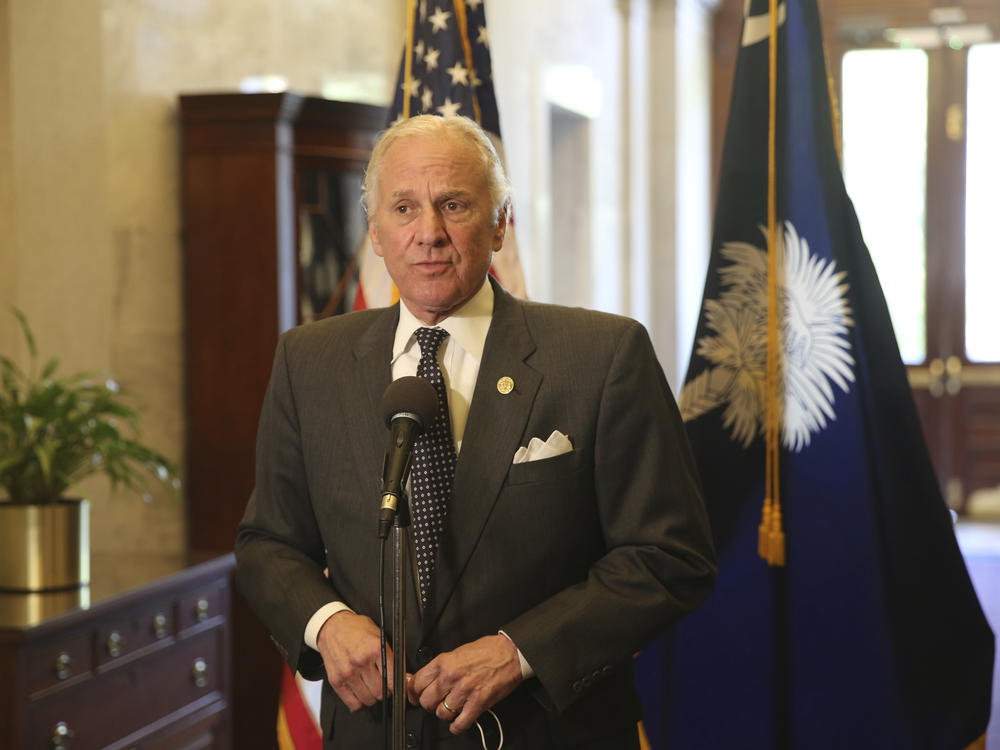Section Branding
Header Content
South Carolina Governor Bans Mask Mandates
Primary Content
South Carolina Gov. Henry McMaster issued a coronavirus mandate Tuesday preventing schools and local governments from creating mask mandates. His order also bans the use of so-called vaccine passports in the state.
Under the 15-page executive order, parents — not public school officials or school districts — will decide whether students wear masks in class.
"We have known for months that our schools are some of the safest places when it comes to COVID-19," McMaster said in a statement. "With every adult in our state having the opportunity to receive a vaccine, it goes against all logic to continue to force our children – especially our youngest children – to wear masks against their parents' wishes."
McMaster ordered the South Carolina Department of Health and Environmental Control, in consultation with state's Department of Education, to develop and distribute a standardized form parents and legal guardians may sign to opt their child out of mask requirements.
County or other local governments in South Carolina are also explicitly prohibited from relying on earlier public health orders or using a state of emergency to require masks.
"Everybody knows what we need to do to stay safe – including wearing a mask if you're at risk of exposing others – but we must move past the time of governments dictating when and where South Carolinians are required to wear a mask," McMaster said. "Maintaining the status quo ignores all of the great progress we've made."
Tuesday's executive order also explicitly prevents "any local government, state agency, state employee, or any political subdivision of the state" from requiring residents to provide proof of their vaccination status.
Vaccine passports have been pitched as a way to allow people to show proof of immunization from COVID-19 to gain access to certain events or businesses, or to travel.
McMaster called such a requirement "un-American to its core."
Cases of COVID-19 in South Carolina have trended downward, like much of the rest of the country, according to state data. As of Tuesday afternoon, the state was reporting a 4.1% positivity rate and 95 probable cases of the virus. McMaster's executive order also says 43% of eligible adults in South Carolina have received at least one dose of a COVID-19 vaccine so far.
Despite the downward trend in confirmed cases, public health officials have cautioned against reopening and ditching face coverings too soon.
National trends show the patients being hospitalized with COVID-19 now are overwhelmingly young and middle-aged adults.
Masks have repeatedly been shown to prevent the spread of COVID-19, and the Centers for Disease Control and Prevention still recommends people wear them, even if they've been vaccinated.
South Carolina joins Florida in loosening its coronavirus restrictions. Last week, Florida Gov. Ron DeSantis invalidated county and city rules requiring face masks, or imposing social distancing guidelines.
New York, New Jersey and Connecticut all announced in the coming weeks that they, too, will end most COVID-19 restrictions.
Copyright 2021 NPR. To see more, visit https://www.npr.org.

